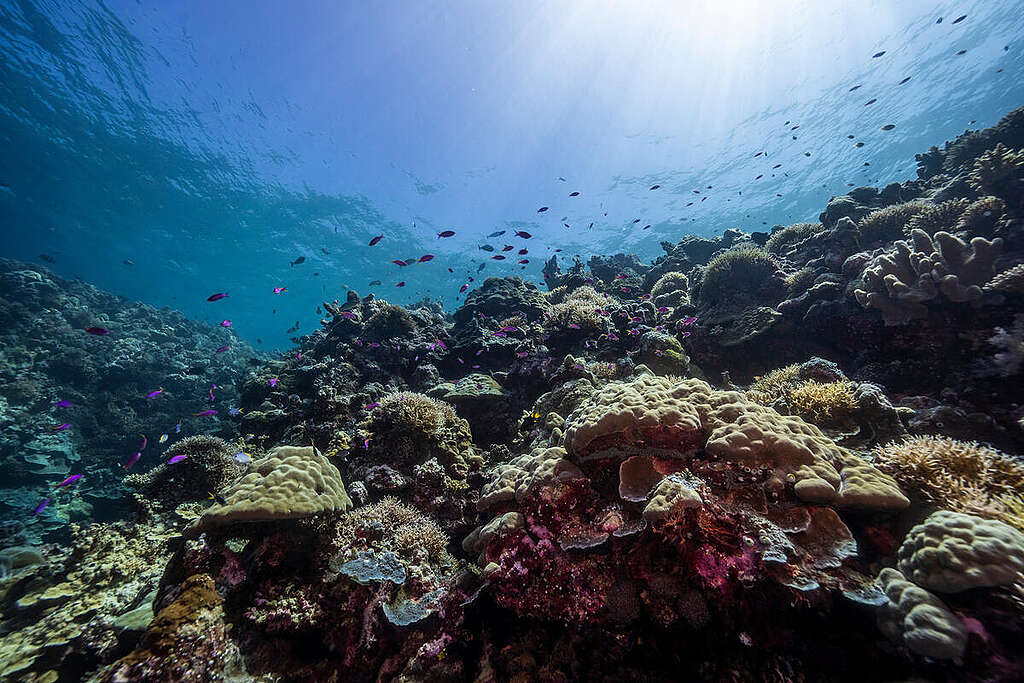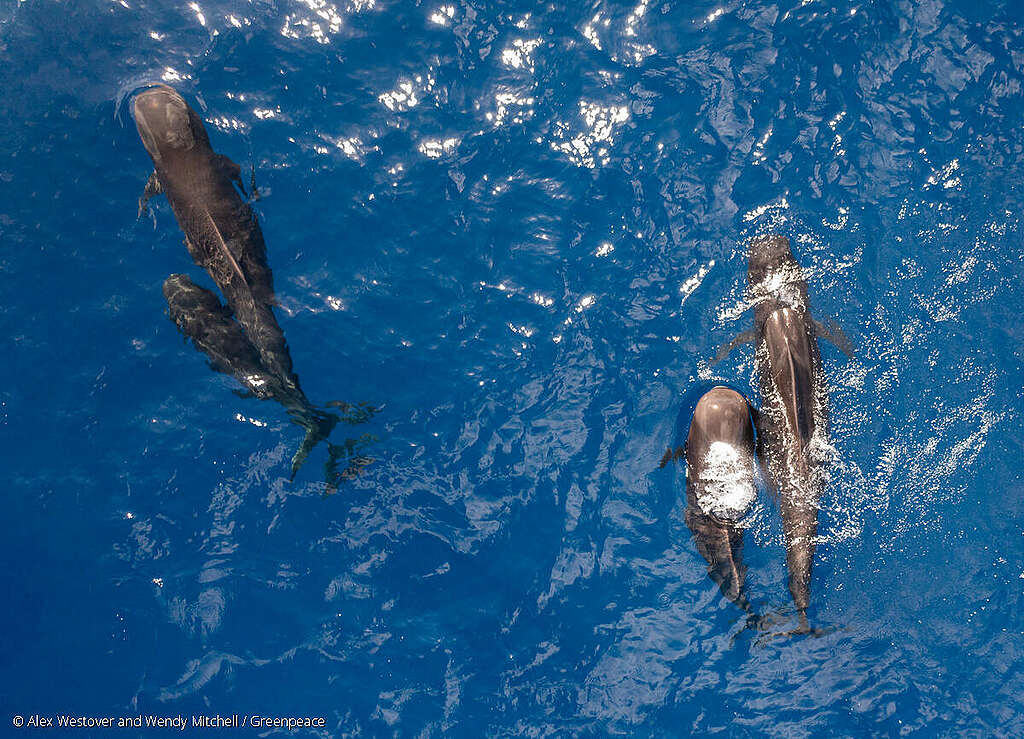There’s something incredibly precious about getting a warm invitation to the house of a stranger. It is the gift of knowing that someone has chosen, in these hurrying times, to take the time and trust to open their home to you, a person whom they have never even met.
I experienced this nourishment a week or two ago, when invited to visit the home of Ann in Margaret River. I was in town for other reasons, and a mutual friend suggested taking the opportunity to meet with the local Nature Conservation-Margaret River Region group. Ann was kind enough to convene a gathering.
Alas, I was not only late, but had somehow contrived to confuse the front of the house with the rear, and so made my entrance rather abruptly at the glass sliding doors that opened out to the back verandah. Thankfully, Ann and her friends were generously forgiving on both counts.
Greenpeace is deeply lucky to have an incredible community of volunteers and activists that bring power to our campaigns, but the movement to protect and nurture nature is its own ecosystem of effort and care. Local community environmental groups offer a precious chance to celebrate both the natural world and humanity; to care for place, and one another.
Introductions were made, and I was offered the hospitality of beverages and home baking. In our time together, I had the opportunity to hear from the group about its challenges and successes, as well as to answer questions about what Greenpeace is doing. Some folks in the room told me they are Greenpeace supporters—and I felt the familiar surge of emotion that rises in my chest whenever I am lucky enough to encounter one of our crew, and given the chance to say ‘thank you’ in person.
You can read about Nature Conservation-Margaret River Region’s projects and successes on their website—but there’s nothing like seeing people’s faces in person, recounting good work that has been done, like blitzing the region of an invasive weed. This is not Greenpeace’s theory of change—we are all about campaigns at scale—but as humans we can do more than one thing at once. And local environmental work in the place where we live nourishes us, as well as the near wild world. One of the things we don’t say enough is that caring for nature—whether through advocacy or conservation—is also a great way to make lasting friends.
But the group shared some frustrations, too—at both political inaction and corporate recklessness.
Ann’s lounge room is a long way from the North West of WA, but everyone in the room knew that Woodside’s Burrup Hub Expansion threatens the lands and waters of Margaret River, as indeed it does the entire world. Already, Margaret River has suffered from severe drought, driven by global heating.
‘Look at those trees’, someone said, gesturing beyond the glass doors, ‘killed by climate change’. And of course, in addition to the sheer devastation of nature destruction, climate change is starting to affect key Margaret River industries like wine-making too.
The time I spent in Ann’s home, sharing stories and insights of triumph and trouble, offered a glimpse of how we get through this historic moment.
We are in a time of terrible damage; the grotesque consequences of decades of institutional corruption by vested interests, and a lack of will by politicians. But these days are also characterised by the organised response of people to this moment; citizens coming together, whether through an organisation like Greenpeace, or a local conservation group—or both—united in the determination that we will see this thing through, to secure an earth capable of nuturing life in all of its magnificent diversity.
It is the profound ambivalence of our times, that pairs visceral awareness of the climate and extinction crises, with the extraordinary warmth of shared reason; of united purpose with millions of other human beings–and indeed with life on earth itself.
For so long as people of good will and commitment, all over the world, join together in hope and action, our prospects for securing the planet’s future flourishing remain alive.
As I leave Ann’s home, with my soul-cup filled, I think of another trip I made to Margaret River a few years ago, to listen and to learn from community members who, in 2011, united to stop the construction of a coal mine. Back then, I wrote an essay of love and appreciation about those who had taken a stand to save their town from fossil fuels against the odds. Our stories have power if we tell them, inspiring us to greater action together.
As we face the days ahead, and look to nourish our purposeful hope, let’s listen to, and tell the stories of agape in action—of those who meet in groups, in halls and homes, as much as on Greenpeace ships or in campaign meeting rooms—and speak to one another of the rising sun on the wide horizon; of ideas, strategies, tactics, plans and dreams of the future history that we may yet make together.

Q&A
This month’s question comes to me from the wonderful kids at a Sydney pre-school, who sent me the following letter and some lovely artwork.
Dear Greenpeace,
We have been reading ‘Dear Greenpeace’ almost everyday. We love whales. We want to save whales in trouble like superheroes. Whales are the best creatures in the world. You can’t hurt whales because it’s not kind. We would like to invite you and the whales over for a play date. We can dig a ginormous hole for the whale and get water from the ocean at our play date. We could give him a hug. We could fight the bad guys and give whales superpowers to keep them safe, like super speed, fire power, and web power to wrap people up.
Dear kids,
Thank you so much for taking the time to write to Greenpeace. We love getting letters!
A play date with whales sounds like so much fun! We would have to dig a very big hole though, and I am not sure how happy the whale would be. How would it get exercise, and enough to eat!?
I am so glad that you have been reading the book Dear Greenpeace! Reading is such great fun. One of my favourite kids’ books is ‘The Snail and the Whale’ by Julia Donaldson. Does your school have that one? I love that book, because it tells the story of how a tiny little snail and a classroom of school kids all join together and cooperate to take care of a whale, which is a little bit like what you have been thinking!
I love your idea of giving whales superpowers. But did you know that whales already have some superpowers? They are as strong as a superhero, they can swim like a superhero and they have amazing sensitive hearing–which is an awesome superpower! Some whales even have supersonic hearing powers!
But even though they have superpowers, whales still need our help because their home–the ocean–is being damaged by pollution. You kids have super powers too–like cooperation! One way that you could help stop whales getting hurt by pollution is by your whole class writing a letter to the Prime Minister, asking him to stop a company called Woodside from drilling into the ocean next to a whale home called Scott Reef. Here are some pictures of Scott Reef.
It would be so amazing if you could do that, and it would help our chances of helping to protect the whales.
Thank you again for writing. And don’t stop caring for the whales!
With love,
David


